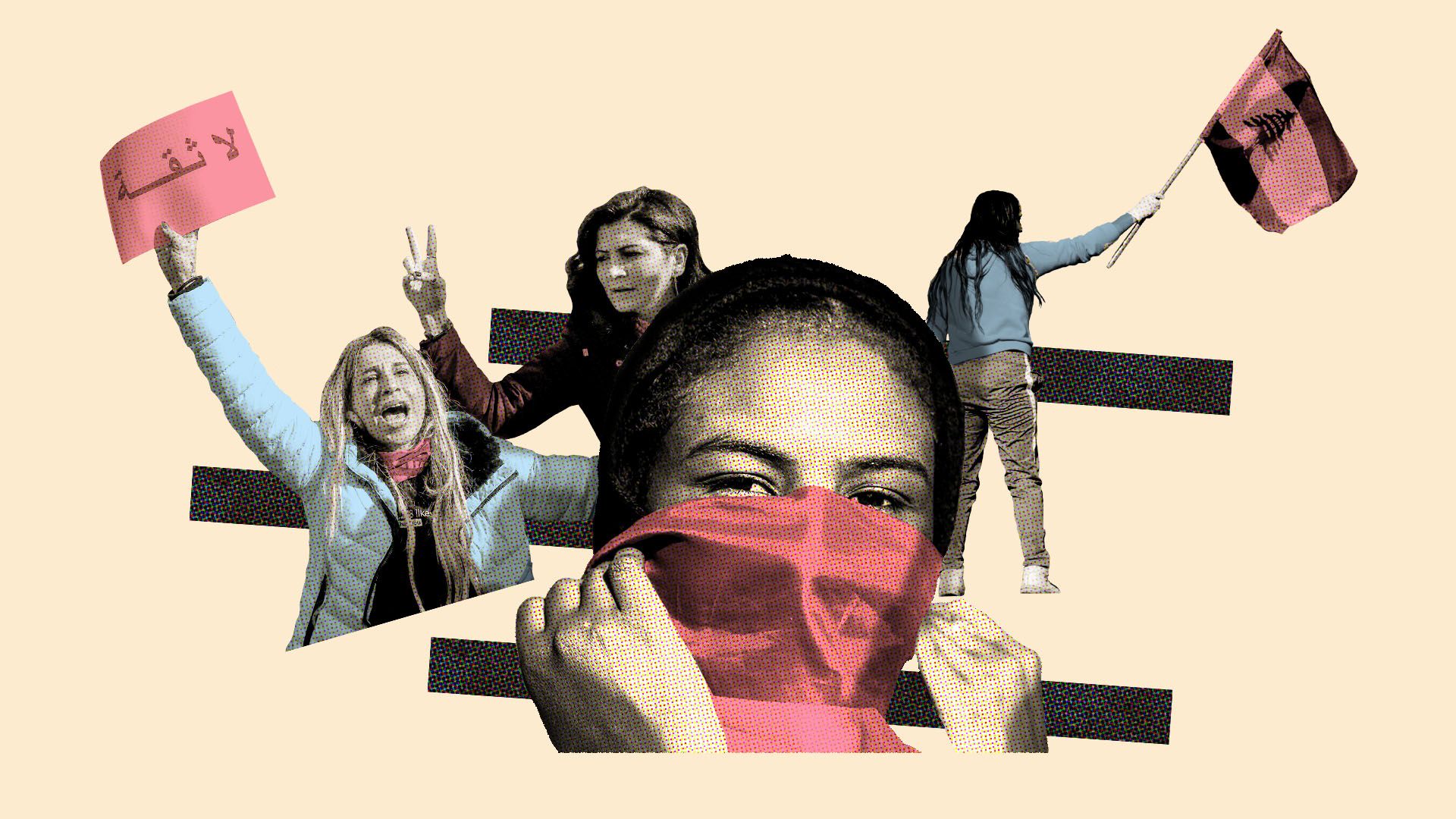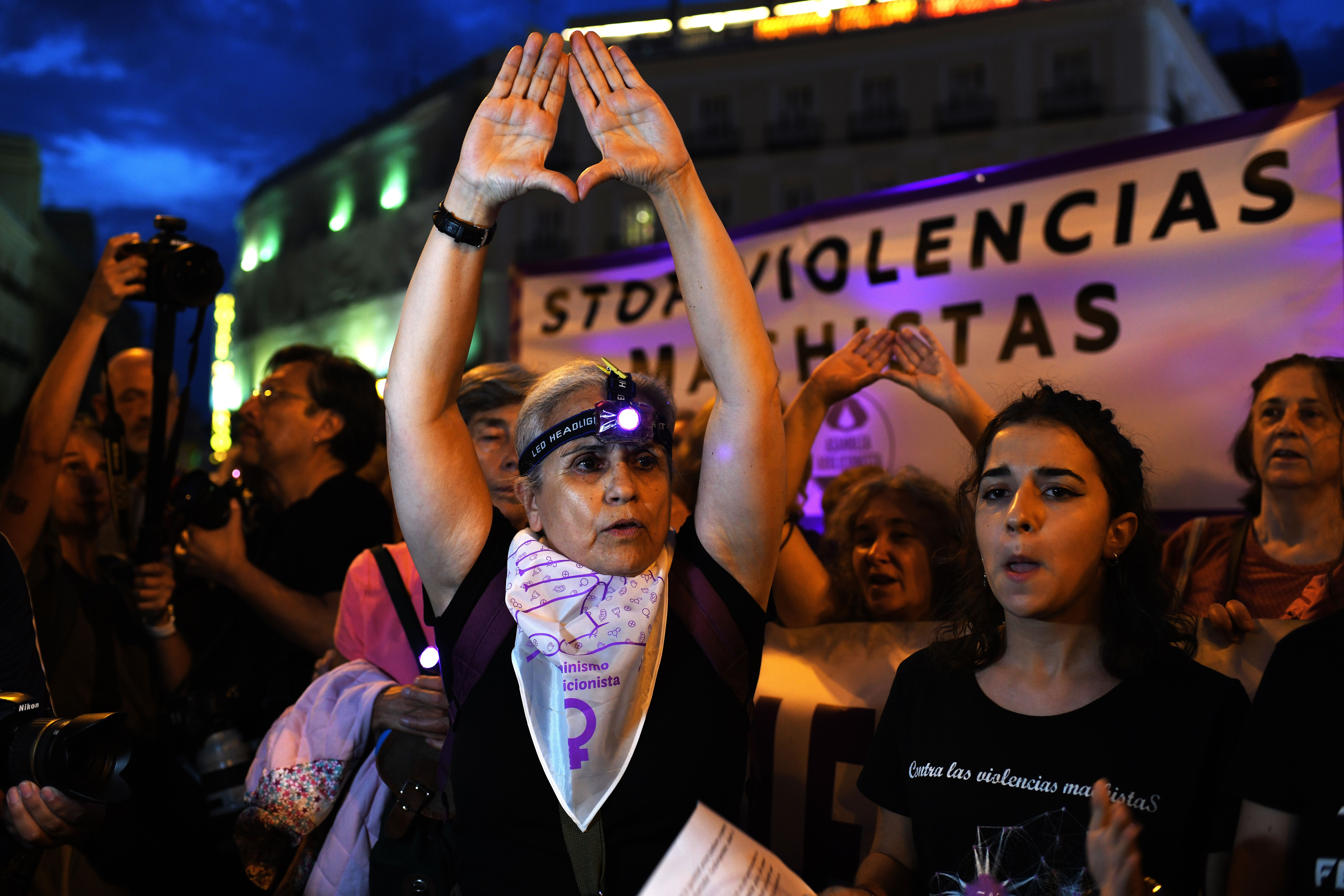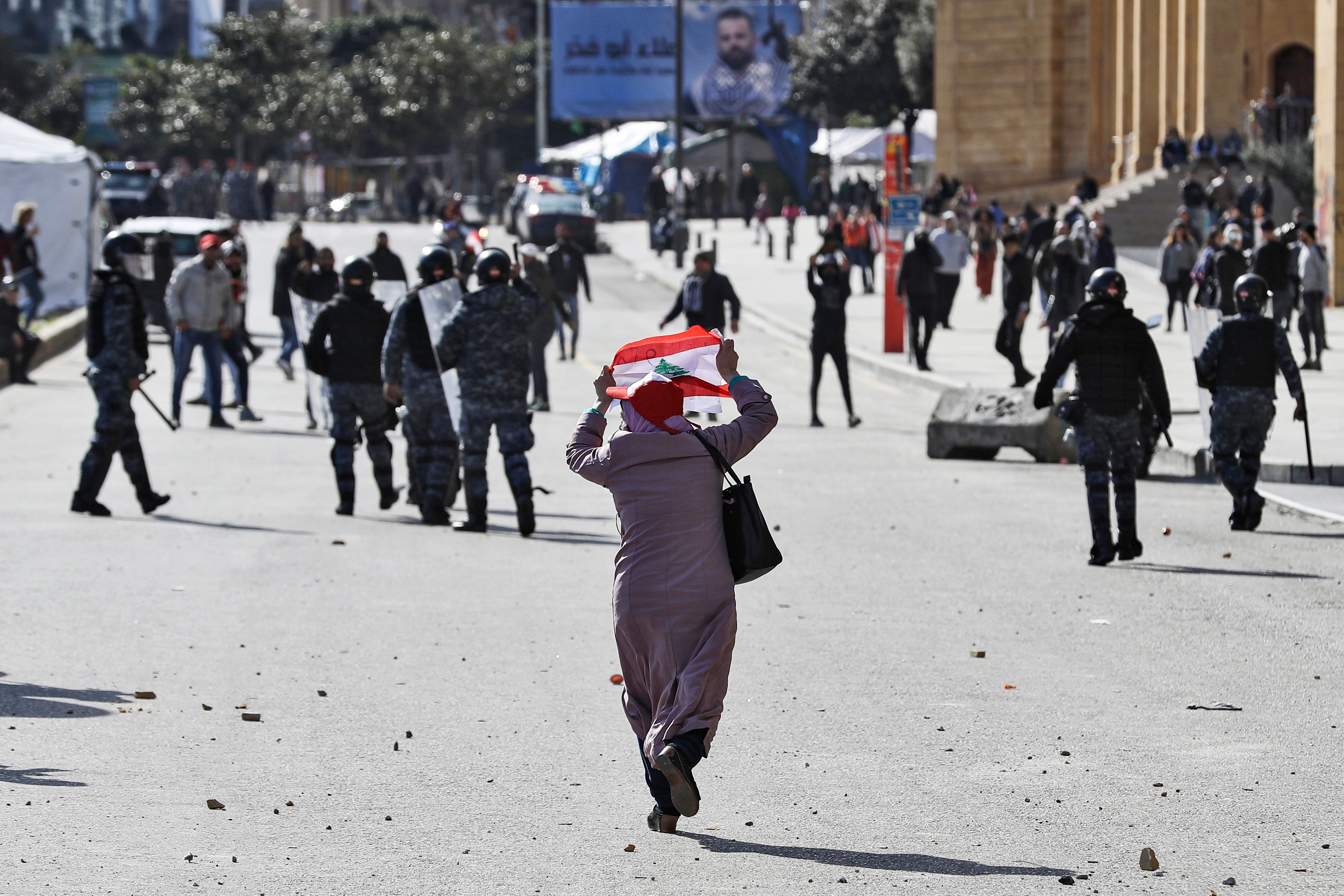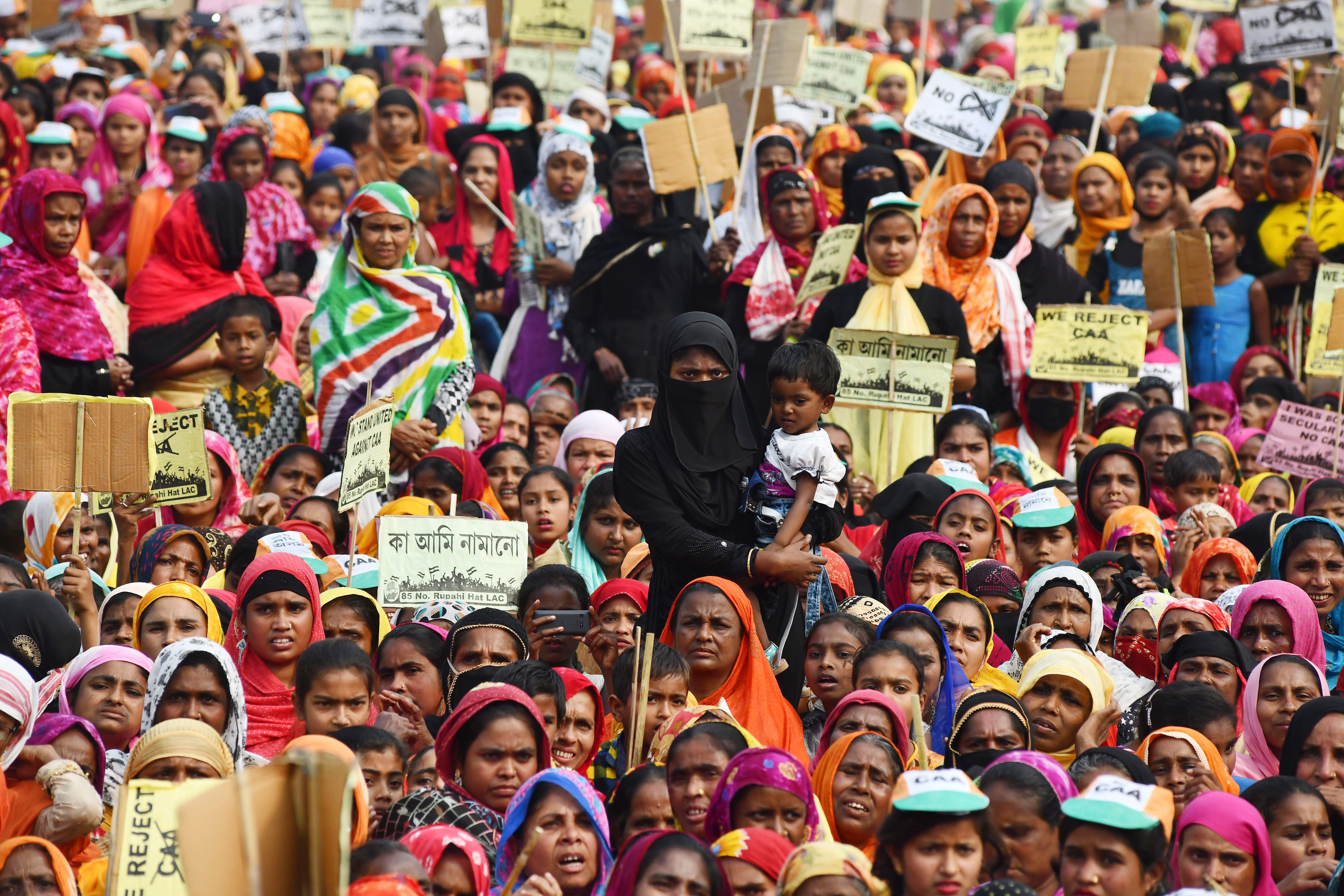By Rashaan Ayesh

Photo Illustration: Sarah Grillo/Axios. Photos: Mahmoud Hjaj/Anadolu Agency via Getty Images, Marwan Naamani/picture alliance via Getty Images, and ANWAR AMRO/AFP via Getty Images
Gender-based violence, WhatsApp message taxes and the rising cost of bread have set off some of the largest protests in the past year, and women were among the first in the streets, often risking their personal safety.
Driving the news: Women in Mexico have organized “A Day Without Us,” a national strike on March 9, to coincide with International Women’s Day. Women are encouraged to “disappear”: to stay at home, away from work, out of stores and off the streets to highlight their vital role, The New York Times writes.
- The impetus for the protests was an increase in gender-based attacks and murders. The violent deaths of Ingrid Escamilla, 25, and Fátima Cecilia Aldrighett, 7, occurred within 24 hours of each other, and women’s rights groups have accused the government of inaction in finding and prosecuting the killers.
Why it matters: There is a direct correlation between the success of protest movements and the participation of women, Harvard Professor Erica Chenoweth finds.
- Protests are more likely to remain nonviolent when women participate, according to a United Nations report.
- Women effectively take on many roles during protests and mass movements, from organizer to caregiver to protector.
- Women playing visible roles in protests have become symbols of freedom and progress.
Yes, but: Even after helping propel issues forward, women can become “sidelined and underrepresented in political processes, government transition, and negotiations,” the UN notes. They also often risk their personal safety by participating.
- Three women in Chile were stabbed while protesting for abortion rights, The Guardian reports.
- Female protesters and journalists were raped, assaulted and detained in some countries during the Arab Spring in 2011, per The Washington Post.
The global picture
In Spain, protesters declared a “feminist emergency” following a string of rapes and domestic violence attacks that resulted in the deaths of some women, The Guardian notes.
- There was a public outcry in 2016 when a group of five men were jailed for the lesser crime of sexual abuse, rather than rape, after assaulting a woman during the running of the bulls in Pamplona.
- The ensuing protests drew one of the loudest conversations to date on Twitter about feminism and equality.
- Where things stand: Spain’s government recently approved a draft law strengthening convictions for rape.

In Sudan, Alaa Salah, 22, quickly became the symbol of national protests sparked by a rise in the price of bread. They successfully toppled Omar Al-Bashir, who ruled with a heavy hand for nearly 30 years.
- Women made up a majority of the protesters in the streets and assumed numerous roles, from organizing sit-ins to cooking for others, per Al Jazeera.
- The white fabric draped on Salah, known as a toub, became a symbol of freedom for the protests, and women continued to wear them in the streets, Vox writes.
- The women protesters drew attention to the struggles and oppression they faced under Bashir’s rule.
In Lebanon, women came out en masse to protest Saad Hariri’s government after it attempted to implement a tax on popular message service WhatsApp amid an already dire economic situation.
- A report from the UN illustrates the role women played in ensuring the protests didn’t turn violent, even acting as “human buffers” between security and demonstrators.
- Nearly half the protesters were women, and they forced the national conversation to turn to gender rights even as the Lebanese people were demanding Hariri’s government step down — which it did.

In India, women were among the first to protest Prime Minister Narendra Modi’s citizenship law, which excludes Muslims, and a citizenship register which threatens to make millions of Muslims stateless.
- Women have the most to lose. Many Indian women lack any government documentation or identification to prove their citizenship, DW writes.
- “From activists and lawyers to students, housewives and grandmothers, both Hindu and Muslim, women across India have been at the forefront of the resistance to the new citizenship law…For many, it is the first time they have had any political engagement at all,” The Guardian writes.

The bottom line: Protests and mass movements are less likely to find success if half of the population is silent. Increasingly, women are speaking out.
Rashaan Ayesh is a newsdesk reporter covering breaking news for Axios. She is interested in the Middle East and other international affairs.
This article was published on March 9 at Axios.
